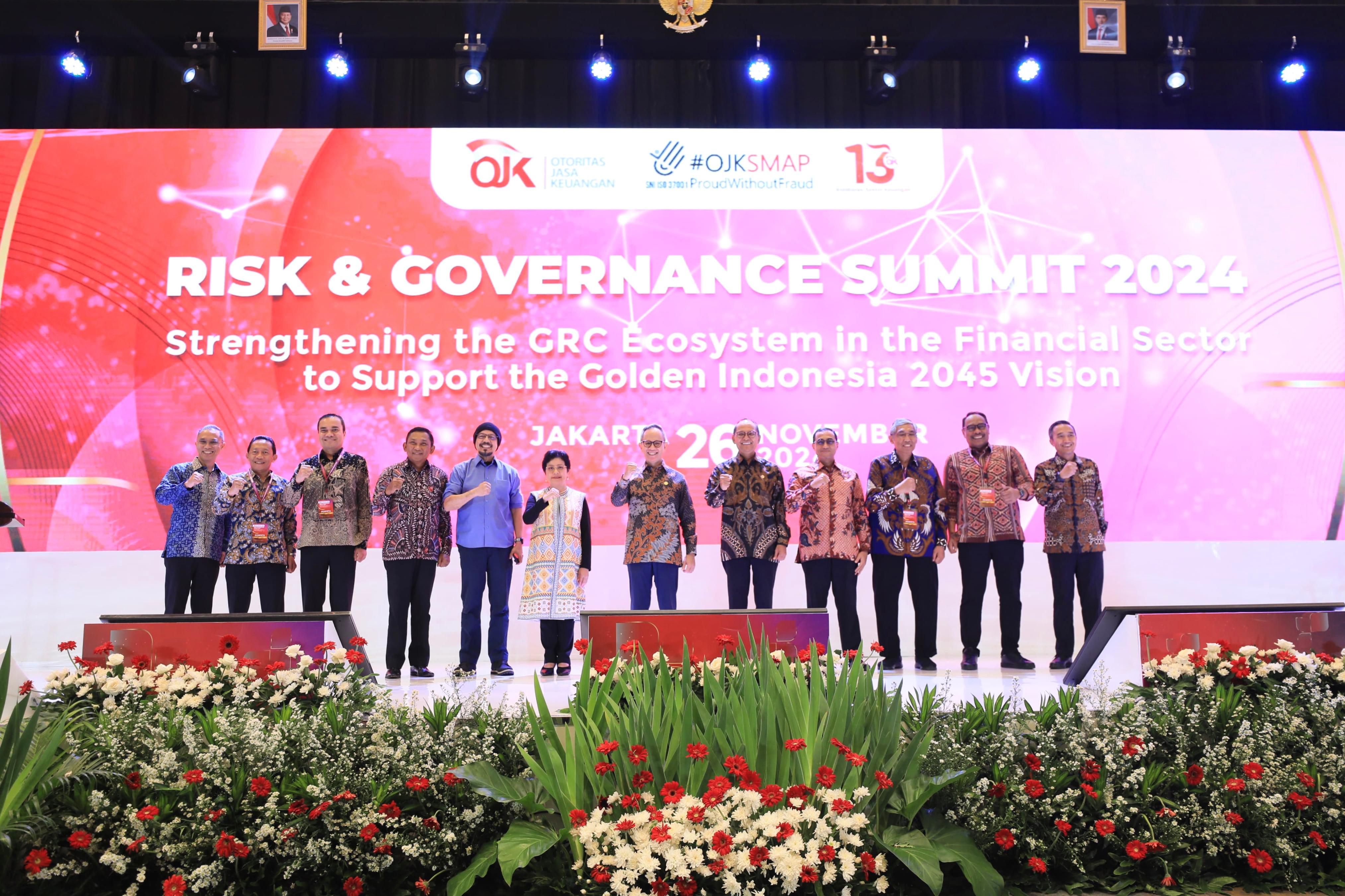At the Risk and Governance Summit (RGS) 2024 in Jakarta, Sophia Wattimena, the Chair of the Audit Board and a Member of the Financial Services Authority (OJK) Board of Commissioners, emphasized the critical role of Governance, Risk, and Compliance (GRC) in Indonesia's financial sector to help achieve the country’s "Golden Indonesia 2045" vision. Sophia addressed an audience of over 5,500 financial sector leaders, policymakers, and experts at the hybrid event, which took place on November 26, 2024. The summit focused on strengthening the GRC ecosystem to ensure sustainable financial growth and long-term stability.
Sophia explained that in the pursuit of Indonesia's national goals, especially in the 2024-2029 government plan, the financial sector must prioritize governance and use technology as a tool to prevent and eliminate corruption. "The financial sector has a strategic opportunity to contribute significantly to the nation's goals while maintaining effective risk management practices, particularly in anticipation of emerging risks that could disrupt business continuity," she stated.
The need to address evolving global risks was also highlighted. According to the 2024 Global Risks Perception Survey by the World Economic Forum, sectors such as cybersecurity, misinformation, climate change, and geopolitical uncertainty are increasing threats to the global economy. These emerging risks are pressing concerns for Indonesia's financial sector, which must adapt quickly to safeguard the economy.
As highlighted in the 2025 "Risk in Focus" report by the Institute of Internal Auditors (IIA), cybersecurity, digital disruption (including AI), and environmental issues are among the top risks that need to be addressed in financial services. At the summit, OJK presented its strategies to mitigate two key risks: sustainability and cyber resilience.
On sustainability, OJK is encouraging the financial sector to mobilize funding for green initiatives by following the Indonesian Sustainable Finance Taxonomy (TKBI) and utilizing the Climate Risk Management & Scenario Analysis (CRMS) framework. These guidelines aim to integrate environmental considerations into financial decision-making and ensure that the sector plays a role in climate change mitigation.
In the realm of cybersecurity, OJK is pushing for stronger digital infrastructure within financial institutions, mandating robust cybersecurity measures through regulations such as POJK 11/2022 on IT Governance in Commercial Banks and POJK 4/2021 on Risk Management for Non-Banking Financial Institutions. These regulations, along with newly introduced cybersecurity guidelines and AI ethics codes, will continue to evolve to ensure financial systems are resilient against cyber threats.
Mahendra Siregar, Chairman of OJK’s Board of Commissioners, stressed that GRC is an essential pillar of sustainable development strategies. He emphasized the importance of integrating environmental, social, and governance (ESG) factors into business strategies, ensuring that all business decisions consider their impact on society, the environment, and governance standards.
Additionally, Mahendra outlined how financial institutions must incorporate GRC into digital transformation, ensuring that the use of new technologies aligns with sound governance practices and regulatory compliance. "Transparency and accountability in ESG reporting are vital, and there must be a concerted effort to avoid greenwashing," he said.
The summit also addressed the need for cross-sector collaboration. Mahendra highlighted that sustainable financial growth cannot be achieved without synergy between regulators, the financial industry, and society. This collaborative effort is crucial to creating a strong, sustainable financial ecosystem that can support the ambitious goals set for 2045.
The RGS 2024 marked a key moment for the OJK’s ongoing efforts to encourage collaboration between industry players, academic institutions, and stakeholders in the financial services and GRC sectors. By fostering stronger governance practices, OJK aims to ensure a resilient, transparent, and accountable financial ecosystem that supports Indonesia’s long-term economic goals.
Read More






 Tuesday, 24-02-26
Tuesday, 24-02-26







